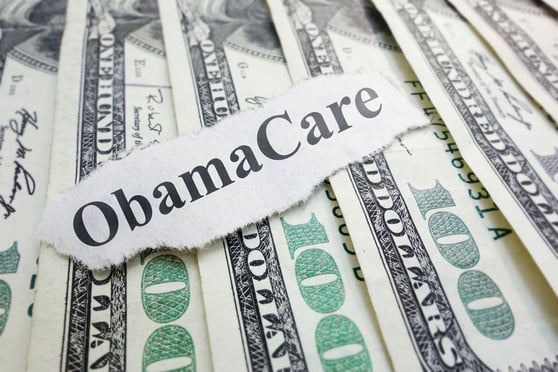One of the Obama administration’s numerous experiments to reducethe cost of Medicare has provoked furyfrom cancer doctors.
|The administration announced last month it would be tryingout a new model to reimburse doctorsand providers for the cost of medications administered atoutpatient facilities, typically expensive cancer treatments thatare delivered intravenously at cancer clinics.
|The current system pays doctors the average sales prices of thedrug plus 6 percent. The new model will pay doctors the averagesales price plus 2.5 percent and a flat fee of $16.80 for every daythe medication is used.
|Guiding the new proposal is the belief that the current systemencourages doctors to opt for the most expensive drugs. Medicare plans compare the twonew systems side-by-side, with some doctors staying in the currentreimbursement model and others taking part in the new one.
|Cancer doctors, pharmaceutical firms, and some groups for cancerpatients are claiming that the proposal will result in providersbeing undercompensated for their work and that patients will sufferas a result.
|"It is remarkably insulting that some people today think thatcancer physicians in large numbers are saying, 'What's the mostexpensive way I can treat this patient?'" Dr. Allen Lichter, CEO ofthe American Society of Clinical Oncology, told ABC News. "It willseverely damage oncology practices across the country, and it willnot solve what we have long recognized is a serious problem, thatcancer drug prices are skyrocketing."
|Opponents warn that the new policy will shutter small areacancer clinics, which they claim will disproportionately impactpatients in rural areas. U.S. Sen. Chuck Grassley, R-IA, invokedcomplaints from rural constituents and urged the Obamaadministration to scrap the plan.
|But some medical interests, such as primary care doctors, areinclined to support the plan, as are health policy experts who seereining in the nation’s rising health expenditures as unsustainableand a threat to the functioning of the U.S. health care system.
|The AARP, for instance, one of the most reliable defenders ofpreserving Social Security and Medicare benefits, supports theexperiment.
|"We've done a lot of talk about prescription drug spending, butwe really haven't moved to the action part,” Leigh Purvis, an AARPhealth policy analyst, told ABC. “This is really the first timewe've seen talk translated into action."
Complete your profile to continue reading and get FREE access to BenefitsPRO, part of your ALM digital membership.
Your access to unlimited BenefitsPRO content isn’t changing.
Once you are an ALM digital member, you’ll receive:
- Critical BenefitsPRO information including cutting edge post-reform success strategies, access to educational webcasts and videos, resources from industry leaders, and informative Newsletters.
- Exclusive discounts on ALM, BenefitsPRO magazine and BenefitsPRO.com events
- Access to other award-winning ALM websites including ThinkAdvisor.com and Law.com
Already have an account? Sign In
© 2024 ALM Global, LLC, All Rights Reserved. Request academic re-use from www.copyright.com. All other uses, submit a request to [email protected]. For more information visit Asset & Logo Licensing.








